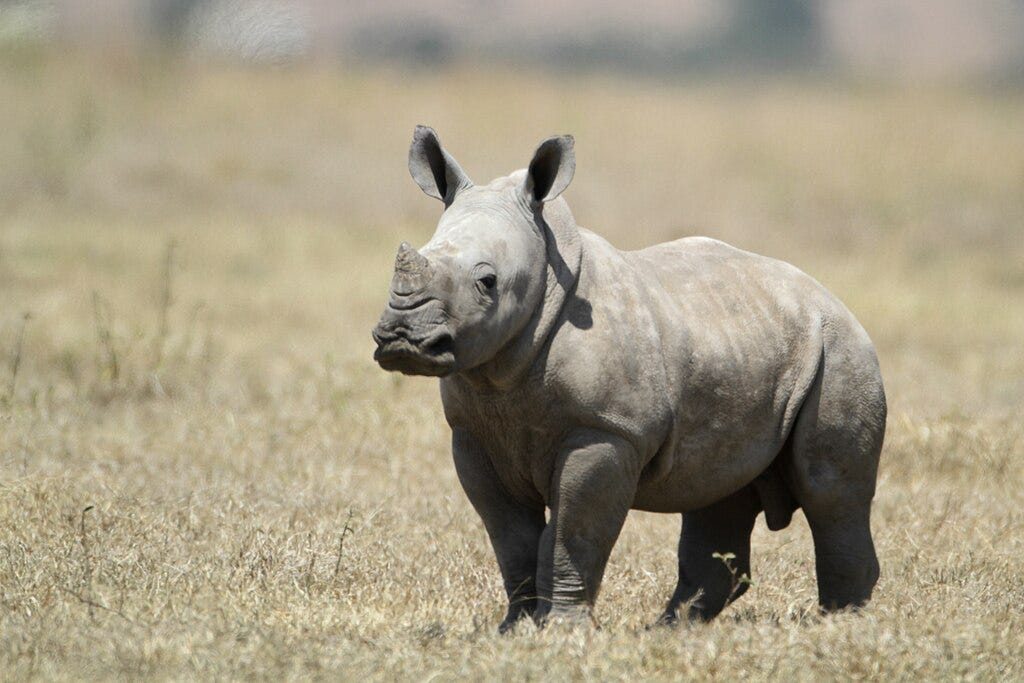South Africa's 'Rhino Baron' arrested linked to horn trafficking
John Hume bred the world's largest rhino herd; but the illegalisation of horn trading hit him hard
South Africa’s “Rhino Baron” has been arrested and is facing more than 50 criminal charges in relation to an alleged rhino horn trafficking syndicate.
John Hume bred the world’s largest rhino herd, comprising more than 2,000 animals. His plan had been to sell their horns legally to traders in Asia, but after international trade was made illegal he was faced with ruin.
The 83-year-old, along with five others, has been bailed by a court in South Africa. One of his alleged co-conspirators has previously been charged with forging a document to authorise the transport of rhino horns. They have been accused of obtaining local trading permits for the horns, “while intending to channel the horns into illegal markets” overseas, according to prosecutors.
Rhino horns are prized in parts of Asia and used as medicine for hangovers, or even cancer. Rhinos are frequently poached for their horns in Africa, and Hume had claimed that his ranch could “serve as a safety net” for their dwindling population.
Cathy Dean, grants lead at the organisation Save the Rhino, said the arrests mark a “critical juncture” in the fight against the illegal horn trade. “Every horn trafficked represents not only a threat to rhinos and the ecosystems they call home, but also fuels wider organised crime, exploiting people and communities throughout the chain of criminal activity,” she added.
You can read a full account of the case in the Daily Maverick.
Canada: A Taiwanese fishing vessel was sighted illegally harpooning dolphins in the North Pacific, according to the Canadian Coast Guard. Authorities carried out a two-month monitoring mission in the remote ocean just outside Canadian national waters. Other vessels were observed illegally catching salmon and harvesting hundreds of shark fins. (Times Colonist)
Sri Lanka: Leopards are being intentionally targeted by traffickers, conservationists have warned, after the discovery of a group of hunters carrying a freshly-skinned carcass. Conservationists said the incident challenged prevailing wisdom that the big cats are not deliberately targeted but are instead killed opportunistically by hunters looking for other animals. Demand for the skin, teeth and claws of leopards is high, they said. (Mongabay)
Argentina: New charges have been added in Argentina’s largest wildlife crime case after a key defendant attempted to flee the country. A raid of the offices of Caza y Safaris, a company which offered hunting trips to tourists in rural Argentina, uncovered more than 8,000 animal parts. The owner of the company, Jorge Noya, had been photographed with a dead jaguar in the past and is currently under house arrest awaiting trial. (Mongabay)
China: Chinese zoos and safari parks are driving demand for smuggled elephants, an investigation has found. One particular park, offering live elephant shows, near the border with Laos reportedly attracted 10 million visitors between 2016 and 2022, making more than $80 million. The investigation claims that these parks break the law by buying elephants commercially from Laos. It is permissible for zoos to obtain protected animals from overseas, but it is a breach of international agreements for such transfers to be commercial. (NZZ)
Hong Kong: Customs rescued 419 endangered live tortoises and more than 1,500 live coral during a two month operation in July and August. The estimated value of the finds was $4.3m. Five people have been arrested. (Customs Department)
Argentina: Two Brazilian poachers were arrested in the northern Misiones province in a biosphere reserve. The individuals were armed with a shotgun and were carrying items which can be used as bait to attract wild animals. They were captured during a routine patrol. The province is home to the famous Iguazu Waterfalls and lies on a triple border with Brazil and Paraguay, making it attractive for transnational criminals. (Noticias Ambientales)
USA: A man from Florida admitted to neglect after leaving more than 100 geckos locked in a storage unit for more than two months. Forty-one of the animals had died when they were discovered while many of the survivors appeared to be malnourished. The storage unit had been locked over non-payment of bills. The animals found were African fat-tailed geckos. (Orlando Sentinel)
Europe: Spanish and Portuguese environmental police seized $175,000 worth of clams and arrested eleven people. Clams are illegally harvested in the Tajo River. Officers believe the group may have made nearly $2m via their illegal fishing activities so far this year. Illicit clam harvesting risks illness as contaminated food can enter the supply chain. (Food Safety News)
Indonesia: A fishing vessel flying the Philippine flag was seized on suspicion of illegal fishing by Indonesian authorities. The ship had a gross tonnage of 754 tonnes, making it the largest catch in a decade, according to the Fisheries Minister. It had 32 crew members on board as well as a 1.3km fishing net, but no permits from the Indonesian government. (Xinhua News)


